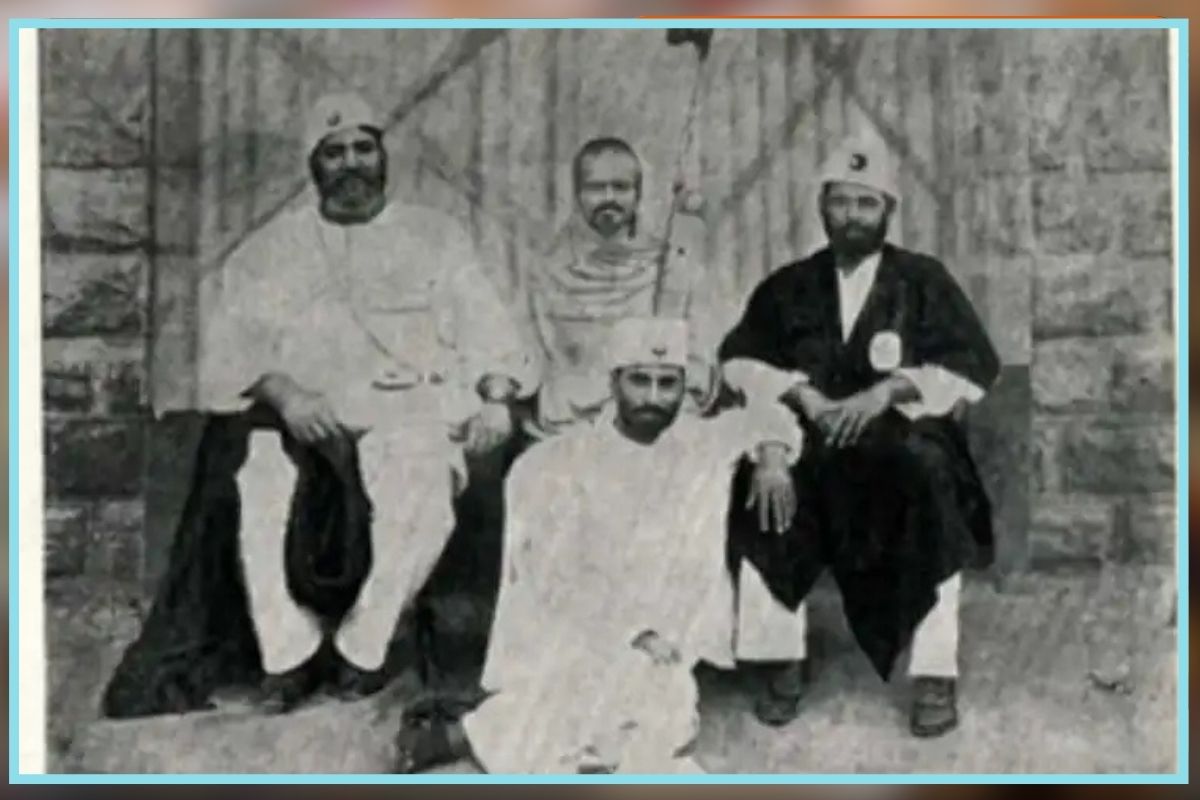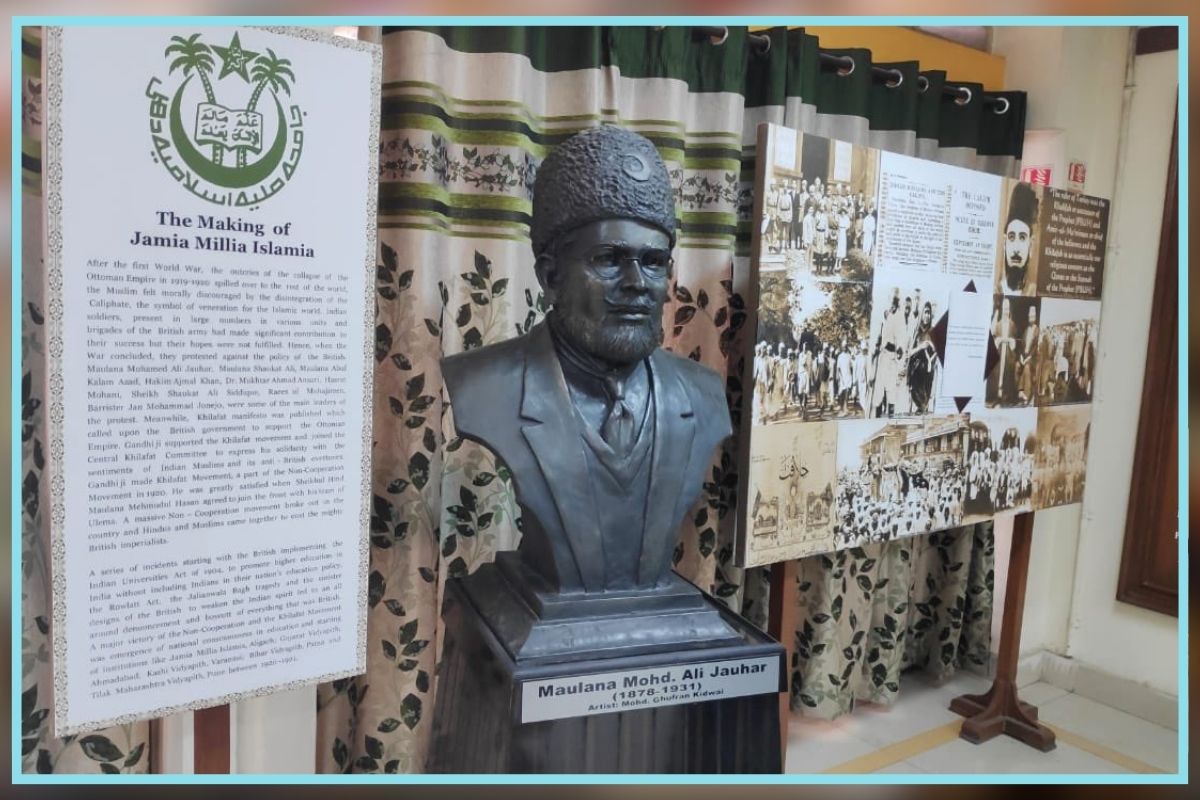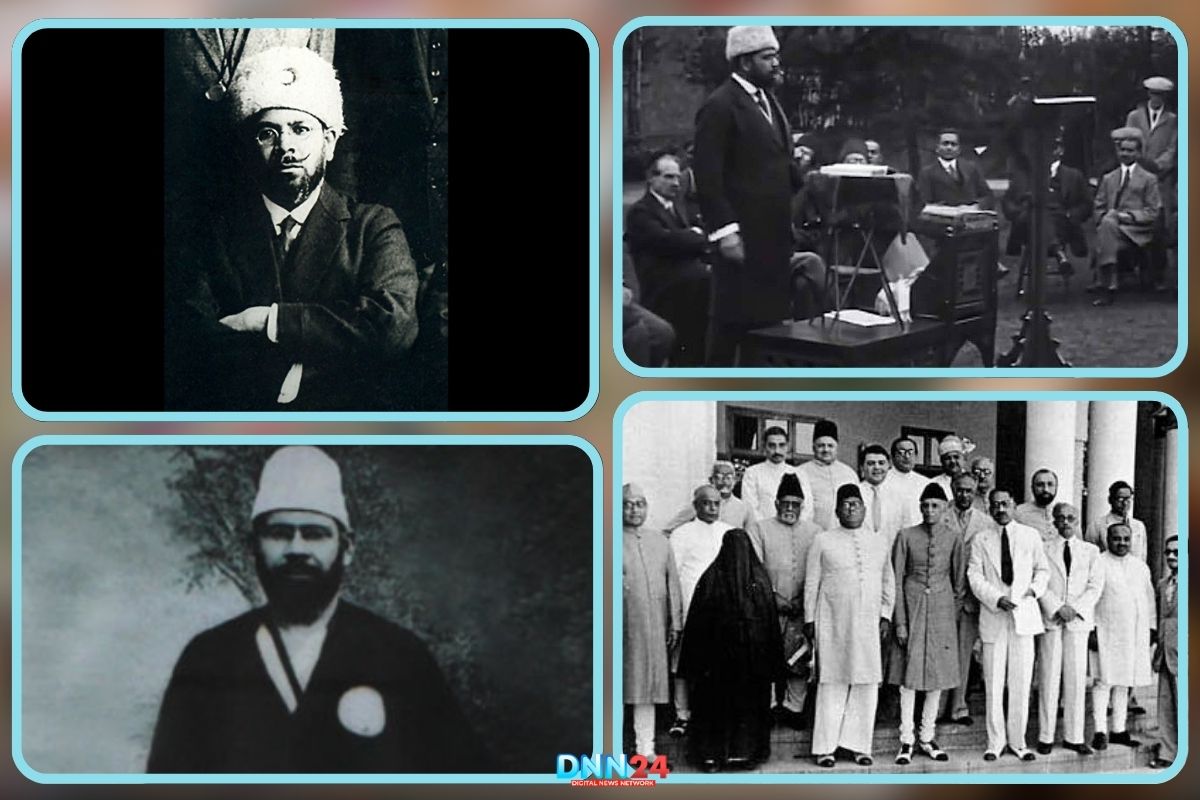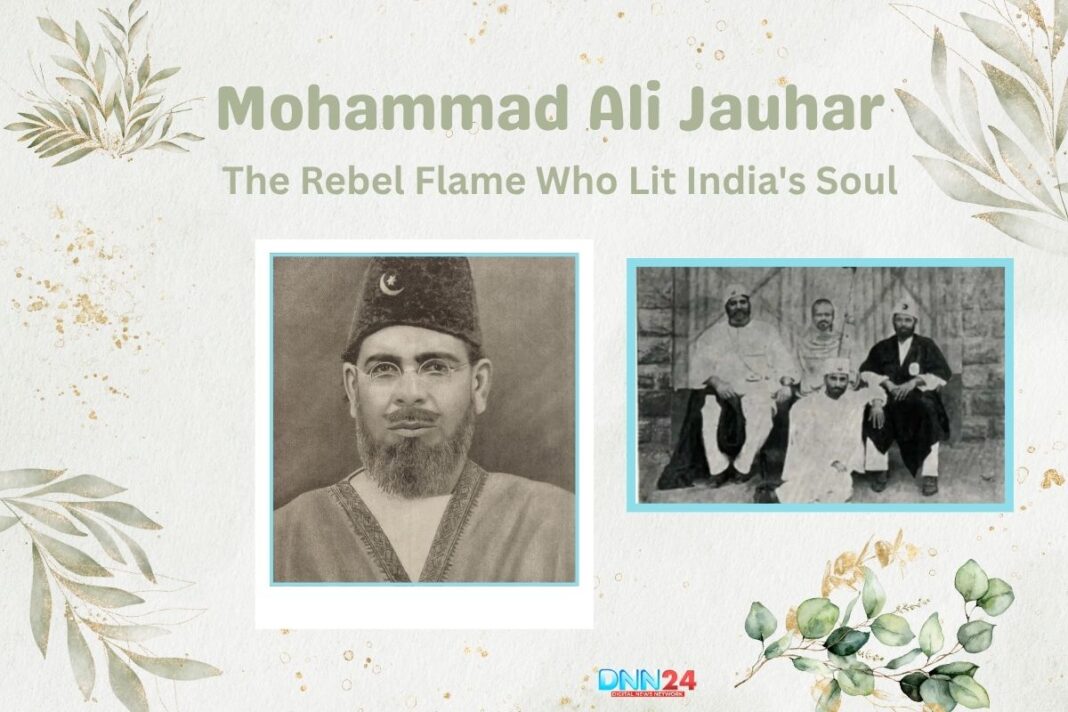Mohammad Ali Jauhar, born in Rampur in 1878, overcame early family tragedy thanks to his mother, Bi Amma’s, unwavering spirit and demand for her sons’ leadership. He was a high academic achiever, having studied at Aligarh and Oxford. After surviving intense racism at Oxford and strengthening his determination, Jauhar returned to India.
He chose not to live comfortably, but served society as an education director and a civil servant. An unrepentant author, revolutionary and a talented orator, Jauhar wrote columns in both English and Urdu. He started influential newspapers such as The Comrade and Hamdard and turned childhood encounters with religion and the confrontation of British prejudice into an irresistible force towards the national leadership.
Khilafat Movement in India: Unity Born of Grief
The end of the First World War brought heartbreak, shattering the Ottoman Caliphate, a spiritual pillar for millions of Indian Muslims. For Mohammad Ali Jauhar, this was a profound, personal blow. Rather than lamenting, he and his older brother, Shaukat Ali, organised and established the Khilafat Movement. It was a political rebellious hymn of unity and not a religious protest. Jauhar’s fierce and poetic speeches united Hindus and Muslims, creating a rare moment of unity against colonial chains.
The British called his stance rebellious, but Jauhar considered it necessary for survival. He defied arrest, famously declaring, “If my voice is silent, then may thy feet make thunder.” Even during two years of imprisonment, he wrote, “Chains cannot silence truth. In the heart of India, there must be unity.” The Khilafat Movement has successfully bridged the religious divide, bringing back a spirit of revolt in India. Mohammad Ali Jauhar’s ultimate legacy was guarding this unity amidst crumbling empires.

Mohammad Ali Jauhar at Indian National Congress: Between Hope and Heartbreak
If history is a stage, Mohammad Ali Jauhar’s role in the Indian National Congress was both thunderous and tragic. To the world, he was seen rising to the presidency of Congress in 1923. Still, behind the scenes, a quieter, more personal struggle raged, his desire to see Hindu-Muslim unity against his growing disillusionment. Publicly, he ranted about freedom. Privately, he told friends like Hakim Ajmal Khan, “We cannot win a house divided.”
He was a Congressman, not a conscientious man. There are untold tales of the 1920s, of Jauhar pacing the verandas at night, torn between the loyalty to the call of Gandhi to non-cooperation and the fear of the political future of the Muslims. He became heartbroken after the movement was called off after the violence at Chauri Chaura. He was also trying hard to persuade other Muslims not to despair, as he experienced the Congress losing its course of sharing power equally. This emotional distance was further widened as the Congress leadership, in its effort to reconcile the Hindu-Muslims, left Jauhar a lonely man–his heart bruised, his ideals intact.
And there is a story that not many people tell: A poor young Bengal volunteer, without the money to buy a train ticket, gave his last paisa to pay the fee to attend a Congress session, and said to the Congress: Maulana, not even hunger shall keep me away.” Jauhar would use such sacrifices to show that the grassroots were ready in India despite the squabbles of its leaders. The Congress period of his life was a tightrope–a step he took now by desperate faith, a fall and an ache. But he continued preaching to other dreamers, “Unity is not an option, it is our only hope of liberation”.
Jamia Millia Islamia: Building a Living Dream
There are revolutions fought with words, and there are revolutions fought with bricks. In the shadow of failed politics, Mohammad Ali Jauhar dreamed of a new battlefront: education. Not only a university, Jamia Millia Islamia was established in 1920 as a rebellion. With such legends as Hakim Ajmal Khan, Mukhtar Ahmad Ansari and Abdul Majeed Khwaja, Jauhar dreamt of a campus where young Indians would be empowered by the power of the pen and not the gun.

The establishment of Jamia is an episode of individual sacrifice that has not been told. Funds were exhausted, and even furniture was scarce in its first winter. Mohammad Ali Jauhar and his colleagues used to auction their personal effects, such as shawls, watches, and home items, to ensure that classrooms were operational. He spent many sleepless nights on bare floors in Aligarh writing letters to Tagore and Gandhi by the moonlight, asking them for moral and financial assistance. Bi Amma, the mother of Jauhar, is well known because she sold her final pair of gold bangles to feed the students, saying, “The hunger of a child is my hunger.” The destiny of Jamia Millia was created by the weeping mothers and the poor students, as opposed to the dignified donors.
Jauhar used to say repeatedly that this Jamia was not a college—it was a pledge that India could be united without losing herself. Today, every time Jamia’s halls echo with debate, every time a student raises a question, Mohammad Ali Jauhar’s quiet revolution lives on.
All-India Muslim League: The Architect of Identity
History books write that he co-founded the All-India Muslim League in 1906, but they rarely capture the storm within Mohammad Ali Jauhar as he shaped its message. Practically, no one is aware that he was the fiercest proponent of unity rather than separation in the earlier days. At that dramatic first encounter in Dhaka, most of the delegates desired an elite club of privileged Muslims. But Jauhar insisted that the League speak for all Indian Muslims, rich and poor, rural and urban.
He was proud of his Green Book–the constitution of the League of 1907, of which he was the chief author. There is the legend of a League conference where, in the grip of malaria, Jauhar wrote down his fevered ideas and directed strategies till the dawn, and would not sleep till his people were no longer politically lost. When he was President in 1918, even when confined, he had only this one message: “Let this League not be an Island, but a bridge, between communities and within our own.”

Fighting to get fair electoral representation was Jauhar’s most considerable pride. Still, he never was a doctrinaire partisan–he struggled to secure the rights of the Muslims as a means of Indian emancipation, not as its foe. The world knows of his stirring speeches on League platforms, but behind the scenes, he ploughed wearily through the epistles of poor farmers and students, plotting the ‘real’ India. To him, the Muslim League was never merely a party; it was the protection of the powerless, the voice of the voiceless and, of course, the greatest of all was the pen in which he hoped to write into the very constitution of India justice.
Legacy of Mohammad Ali Jauhar
Mohammad Ali Jauhar’s life, marked by courage and unyielding faith, was defined by deep patriotism. A selfless rebel, he used to share his food with orphans and composed poetry even in prison. His powerful 1930 declaration, “Give me liberty or give me a grave, I shall not return to a slave land,” embodied his defiance.
His tomb at Al-Aqsa, where he was buried in Jerusalem, means he was tirelessly chasing justice. Jauhar’s life of sacrifice continues to inspire the voiceless to claim dignity. There are Jamia students, earnest writers and questioning activists who are burned by his legacy. His most profound legacy isn’t in monuments but the ongoing struggle for justice and unity. It blossoms in every heart that sheds light on the darkness. Jauhar’s story, of enduring struggles and unsilenced hope, lives afresh in every fight for equality, perpetually guiding India.
Also Read: Dil Shahjahanpuri: The Poet Who Turned Pain into Poetry
You can connect with DNN24 on Facebook, Twitter, and Instagram and subscribe to our YouTube channel.



